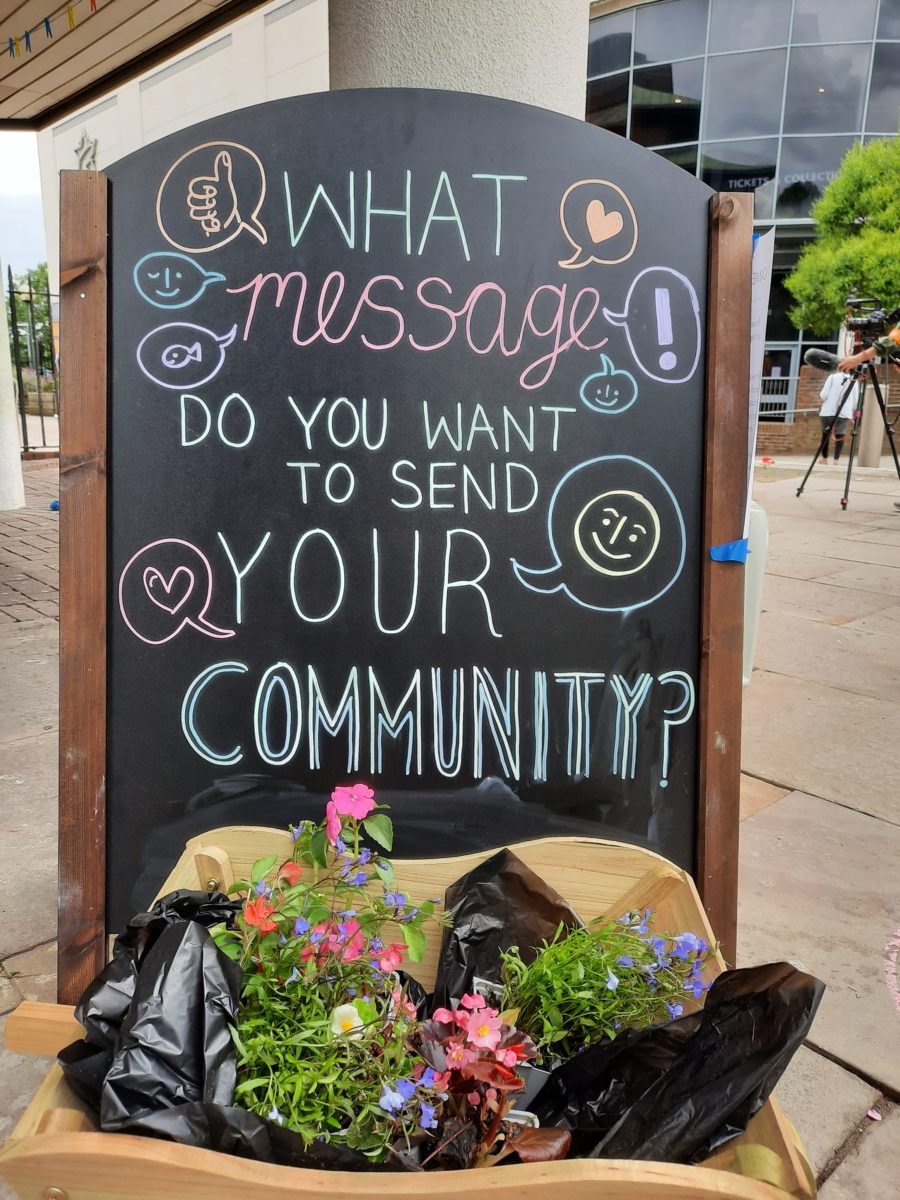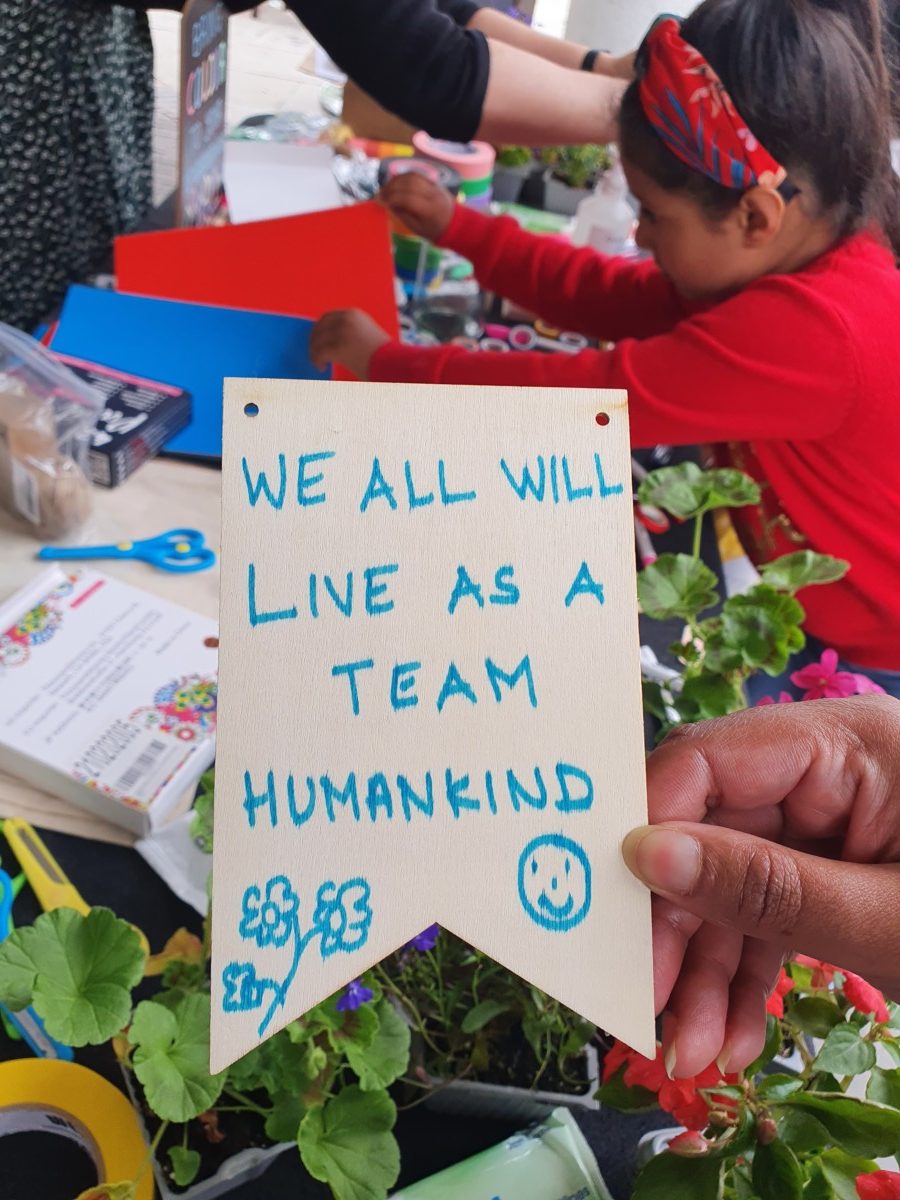The Incubating Civic Leadership (ICL) research project explored approaches and processes to help enable active citizenship, supporting community leadership and cross-sector collaboration in placemaking. This knowledge exchange project, funded through Research England’s Higher Education Innovation Fund (HEIF), is a collaboration between The Glass-House, The Open University and Knowle West Media Centre
The Story
Project dates: September 2020 – July 2021
The creative power of civic leadership stems from bringing together individuals and community groups with different types of organisations (such as social enterprises, voluntary sector organisations, public sector bodies, universities, local media, local businesses and local government) to mobilise change for the benefit of the collective good. But what are the tools and mechanisms that can help mobilise such collaborative action?
How can you help move people and organisations from ideas, through dialogue, towards collaborative action in placemaking?
This research project grew out of a longstanding collaboration between The Glass-House and our strategic partner The Open University, and our shared interest in testing the notion of an “incubator” to support community leadership in design. We were keen to explore what such a space might look like, and to identify steps towards creating either an online or physical hub where people can creatively interact, share learning and develop a network of people, resources and tools in order to co-design ideas, innovations and actions that push boundaries and address challenges at a local and global level.
For this knowledge exchange project, we teamed up with Knowle West Media Centre in Bristol, which collaborates across sectors locally and both leads and supports a spectrum of creative projects.
Establishing our Shared Approach
The first step was to bring together the core research partners to try to unpick our individual and collective understanding of civic leadership, and to consider what an “incubator” to support this might look like.
This was a huge question, and within the context of a one-year project, it was important to consider how we might work with a range of partners, representing different sectors, from our existing networks, in order to quickly mobilise two small, locally based pilot initiatives to test some of the ideas that were emerging.
In London, The Glass-House led a collaboration with London Borough of Redbridge and Muslimah Sports Association and in Bristol, the Knowle West Media Centre led a collaboration with the Knowle West Alliance, Filwood Broadway Working Group and Bristol City Council. Both working groups focused on how to empower civic leaders within the context of placemaking.
The research team decided to use cross-pollination as our primary method for mobilising collaborative action within the extended working group. Cross-pollination is a practical approach to incubating networks of place-based projects, collaborative research and innovation. The approach is based on the principle of creating a sharing economy of assets (skills, projects and resources) among different people and organisations, across disciplines and sectors. It is an approach that was developed through the action research project Scaling Up Co-design and has been further iterated by The Glass-House and The Open University through both research and practice in the context of collaborative placemaking.
You can read more about the cross-pollination approach here.
Embarking on a journey of shared exploration
The first step in this extended collaboration was to invite all of the project partners into an interactive online workshop to consider the notion of civic leadership across sectors and within the context of two very different places, London and Bristol, and more specifically, Redbridge and Knowle West. We shared stories and examples of things that had worked well or been the source of tensions locally in Redbridge and in Bristol, and worked through a series of discussion points to identify some shared values and objectives for some small experiments in incubating place-based civic leadership within these two localities.
We then went on to map ideas, local projects and local assets through cross-pollination to identify some opportunities for pilot project activities.
Activating Locally-based Pilot Projects
Through the first online workshop, and then subsequent meetings and discussions within the two working groups, we moved towards the following activities:
Redbridge Pilot
This pilot was a collaboration between The Glass-House, The Open University, Muslimah Sports Association, LB Redbridge and Redbridge Vision. The working group was interested in testing a process for engaging and empowering communities in shaping local spaces, and decided to experiment with the provision of a council space for ‘meanwhile use’ as a tool to engage “young people of all ages” and empower them as civic leaders in placemaking.
The pilot included an online creative workshop to explore the potential for young people to co-design, lead and manage an initiative for temporary uses for one or more public spaces in Redbridge. We also experimented with a pop-up “urban activation” event in Ilford town centre to explore how a temporary activity to transform and use a space differently can get people interested in how we shape and use our shared public spaces.
You can read more about our Urban Activation in Ilford Town Centre here
Knowle West Pilot
This pilot project is a collaboration between Knowle West Media Centre, The Open University, the Filwood Broadway Working Group and the Knowle West Alliance in Bristol. The group decided to experiment with setting up a stall at the Filwood monthly market, to run over the course of a year. The plan is to use it as a space to have conversations about the future of the place and get more local people actively involved with the activities of the group.
They want to ensure the local community has a voice in the Filwood Broadway regeneration and they also want to get more people using the space in positive ways.
The group will be inviting other associated initiatives from Knowle West to be on their market stall on different months, providing opportunities for broadening and connecting disparate discussions about Filwood Broadway and its future life.
You can read more about their activities here.
Sharing, Reflecting, Iterating
The final stage of our project was to bring partners back together to share our stories from the pilots and to reflect together on what we had learned.
The research team had formulated an outline framework for an incubator based on discussions early in the project, and were keen to test this within the context of the lived experience of the locally-based partners.
What became clear is that there is no easy solution, no “one size fits all” for incubating civic leadership. Every place is different, as are all of the players within it, and while there is much to be learned from sharing stories, learning and resources, it is also vital to create spaces for conversation, dreaming, experimentation and reflection. These should operate on both a local and national (and potentially international) level, and tap into both communities of interest and of place.
As a knowledge exchange project, Incubating Civic Leadership was one of these rich spaces for knowledge exchange, experimentation and learning, and we see this project as just one small step in our journey towards the incubator, whatever shape that may take.
We are pleased that through this experimentation, the small pilot projects have also made a difference locally.
Read on in the Impact section to find out more.
Impact
Through our Urban Activation in Ilford Town Centre, we wanted to explore what would happen if you put objects, in this case, a series of making activities and small plants, into an underused public space and invited people to engage with them. How might this change people’s perceptions of that space, how they interact with it and with other people within it? Would they feel they had the agency to change that space, even if temporarily, and what might that do to help local people feel a greater sense of agency in placemaking within their neighbourhoods? Our Urban Activation event was a quick one, setting up from about 1 pm and all packed away by 5 pm, with all traces of the activity washed from the pavements by the evening rainfall, but it served as an important proof of concept and catalyst locally.
Sam Toogood, a Community Organiser at LB Redbridge, who collaborated with us, said of the event:
“it was a really brilliant observation of children fully engaging with play and gifting in an unexpected place. Marking the pavement with chalk might be normal in a school but it was interesting to see their initial hesitance break into glee as they realised they could apply that same creativity to public spaces”.
It was great to see that people really enjoyed the activities. Perhaps our greatest satisfaction came from the library being keen to repeat the activity, and that we were able to hand over a kit of materials to them so that they could do it again with their volunteers and other groups in their networks. We have remained in contact with the library, and they have continued to organise pop-up arts and crafts family events, with their latest at the time of writing having attracted some 70 participants, both children and adults. Our partner at the library told us,
“The day was a great success, the kids loved getting messy and the parents were very grateful and enjoyed getting creative as well.
Thank you so much for the equipment, we will definitely be using them more in the future. We have a few ideas and I will definitely send over photos when we offer these.”
In Knowle West, The Filwood Broadway Working Group has gone from strength to strength, and one of the group has shared this reflection with us
“that may well be that in a year’s time, we don’t hear the not allowed, we hear the Yeah, we can do this. And I’m part of the x working group as well. And I helped to achieve that new development or (…) that new bench is there, because that was an idea I put down in an engagement thing. So I think for me it’s people feeling that they are part of the bigger picture, that’s where I would like to see it in a year’s time”.
As for the research team, we have now secured funding from the Arts and Humanities Research Council for a new project, due to begin in 2022, focusing specifically on cross-pollination as a tool for placemaking. This will see us sharing and further iterating the approach with place-based partners in England, Scotland and Wales.
Explore
Find our more about the project on the Incubating Civic Leadership website
Incubating Civic Leadership Film
This film gives an overview of the Incubating Civic Leadership (ICL) research project; it provides a glimpse into the civic leadership initiatives supported on the ground and the learning and impact from the multiple perspectives of the academic and community collaborators.
On The Glass-House Blog
Read more about our Urban Activation in Ilford Town Centre here
Civic Leadership case study films
Through this project, we have also created some short films about civic leaders with whom we had collaborated through our Empowering Design Practices research project, who have continued to inspire us. Watch these films in conversation with:
Mike Green, Cemetery Road Baptist Church, Sheffield
Adam Yusef, ISRAAC Somali Community Associations, Sheffield
ICL Project partners
Learn more about our partners:
Filwood Broadway Working Group
Mapping Civic Leadership
The report entitled ‘Mapping Civic Leadership Platforms, Digital Civics and Volunteering in the UK during Covid-19’ provides an overview of the different kinds of digital platforms used during the pandemic, by government, local authorities and community organisations to support civic activity at different scales. It reviews current practices and identifies some key challenges and opportunities for supporting civic leadership through digital tools. The research was conducted during the summer months of 2020 and was funded through the Open University’s Citizenship and Governance Strategic Research Area. The project was led by Katerina Alexiou and Theodore Zamenopoulos at the Open University, with consultant Neil Pye and The Glass-House Community Led Design.











